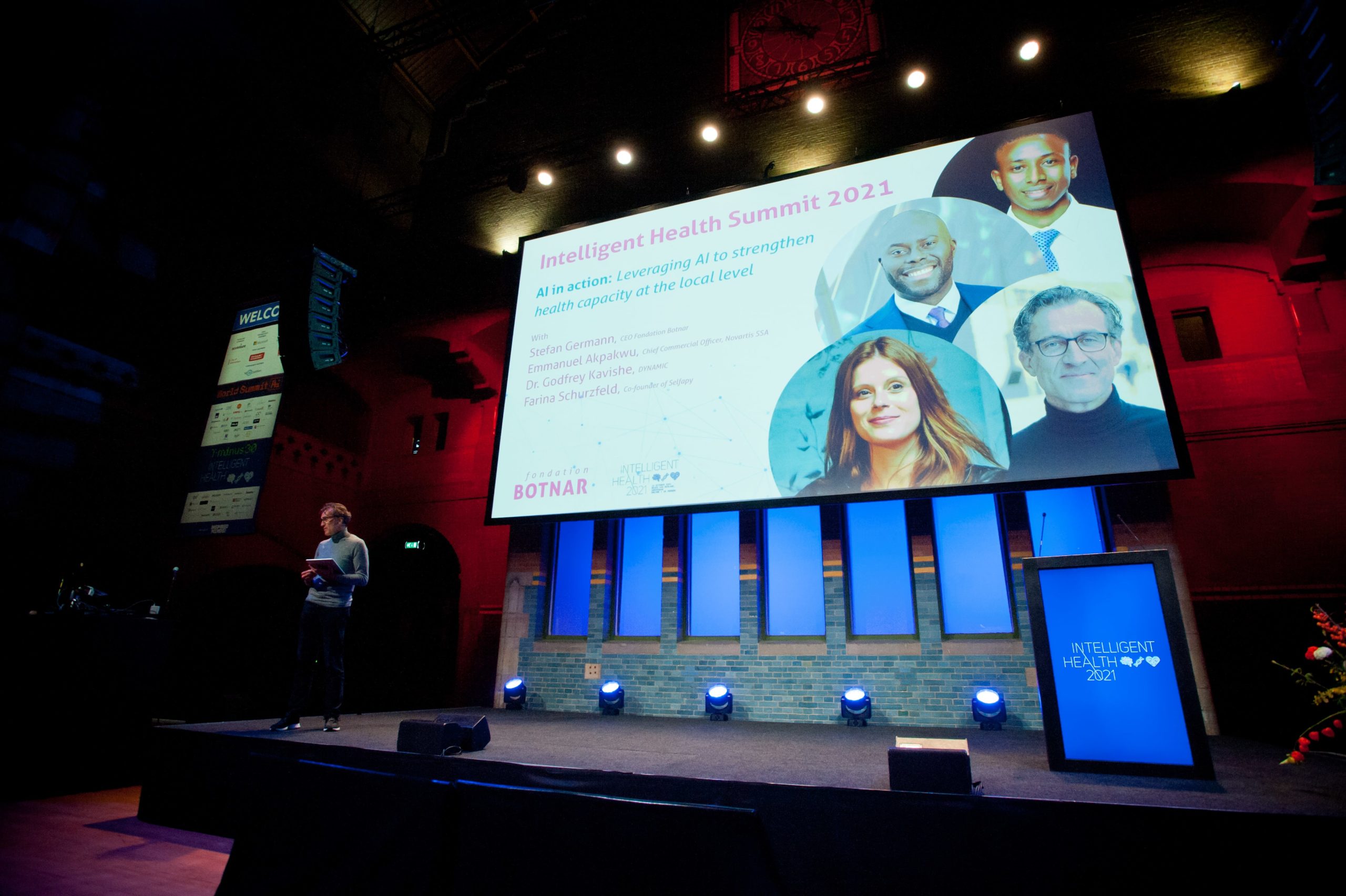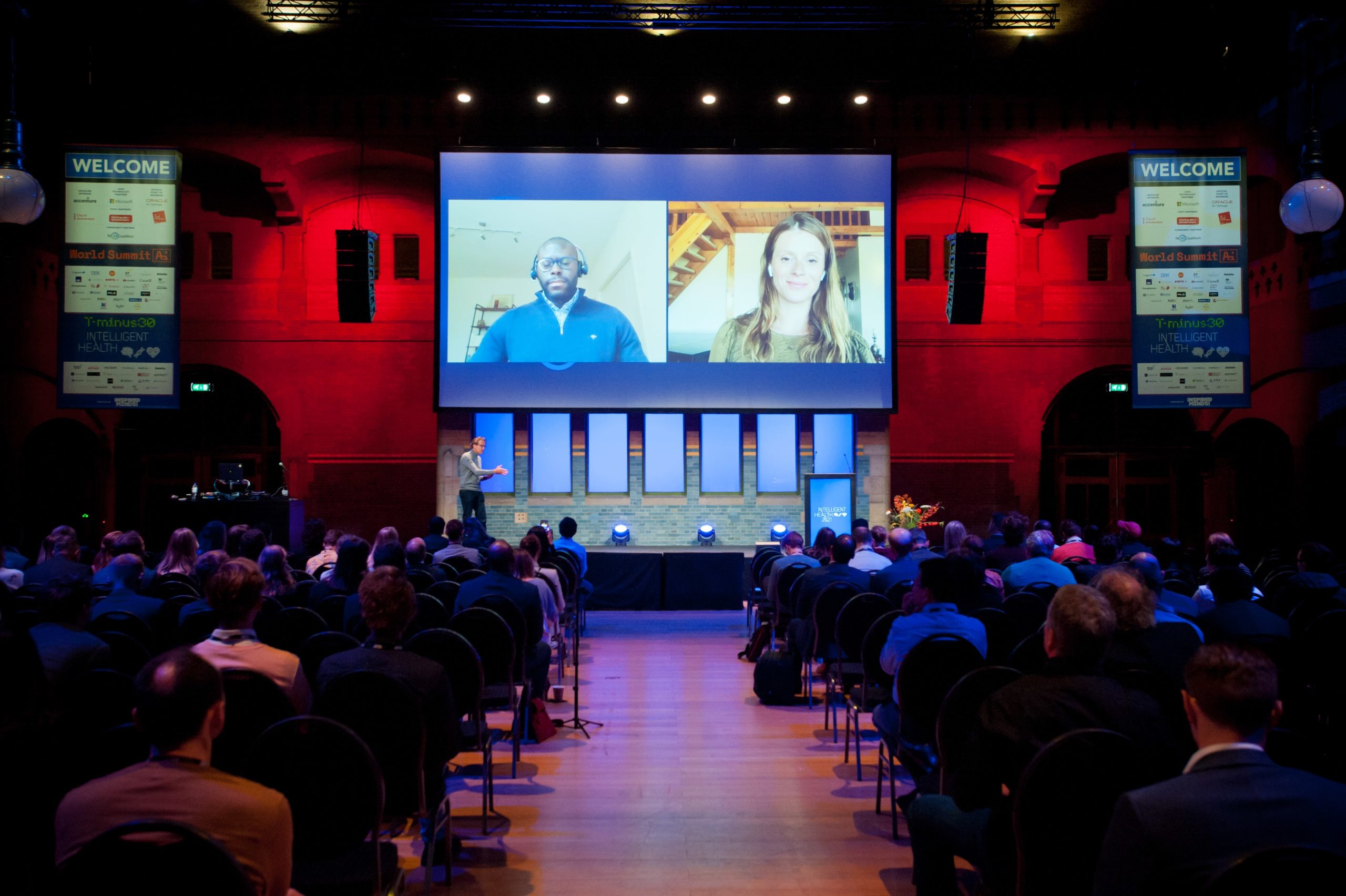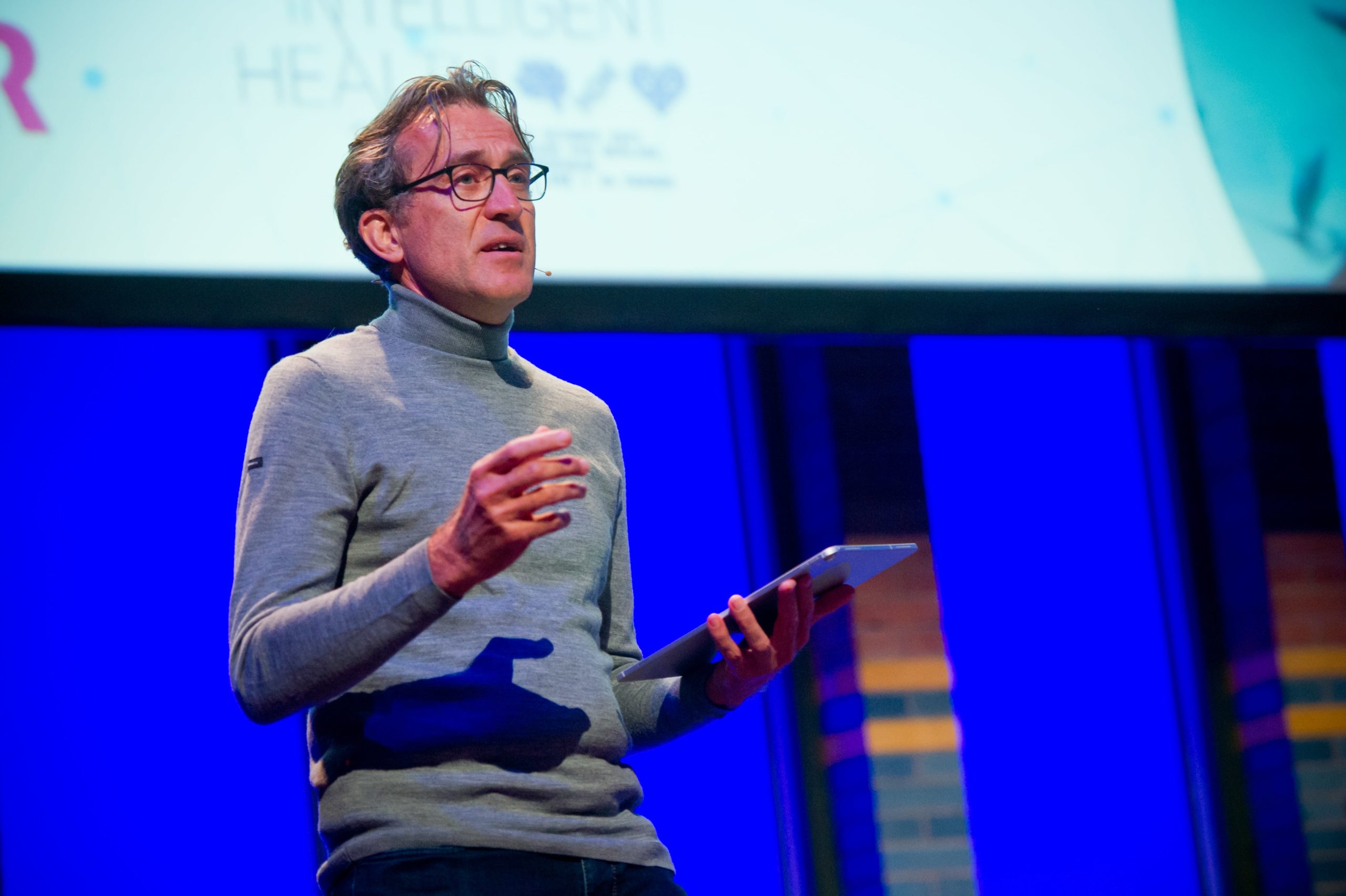I was thrilled to hear that Intelligent Health would be back this year for 2021 as a hybrid event with an engaging online platform and a physical summit in Amsterdam. The topics of discussion at the event were as wide-ranging as previous summits, all focusing on leveraging the vast potential of AI and digital to improve health outcomes worldwide. We were treated to 42 stimulating presentations around topics such as AI for mental health interventions for young people to conversations on ethics around AI in a crisis. Of course, this year’s event featured multiple sessions on the use of digital to provide solutions to challenges caused by COVID-19, reminding us all of how significant the last two years have been for the acceleration of digital tools in health.
This year, I was pleased to be hosting a panel discussion focused on community health initiatives. I was joined by Emmanuel Akpakwu (Novartis SSA), Farina Schurzfield (Selfapy) and Godfrey Kavishe (DYNAMIC), who shared positive stories of AI in action, as well as highlighted the needs that still exist.
 Emmanuel, Chief Commercial Officer at Novartis SSA, opened the discussion by sharing his thoughts on the potential for technology to improve health outcomes and close health gaps in low and middle-income countries (LMICs), only if the technology is used effectively and appropriately. Importantly, Emmanuel stressed the need to use AI to strengthen existing healthcare systems in local contexts, enabling them to prepare for a future of care, which was a consistent theme throughout the conversation. He reflected on how the pandemic has increased our engagement with digital tools in healthcare and spoke to our current environment of healthcare, one that is evolving into a hybrid model made up of in-person interactions and a robust virtual environment.
Emmanuel, Chief Commercial Officer at Novartis SSA, opened the discussion by sharing his thoughts on the potential for technology to improve health outcomes and close health gaps in low and middle-income countries (LMICs), only if the technology is used effectively and appropriately. Importantly, Emmanuel stressed the need to use AI to strengthen existing healthcare systems in local contexts, enabling them to prepare for a future of care, which was a consistent theme throughout the conversation. He reflected on how the pandemic has increased our engagement with digital tools in healthcare and spoke to our current environment of healthcare, one that is evolving into a hybrid model made up of in-person interactions and a robust virtual environment.
While Godfrey Kaviche, from DYNAMIC, could not join the discussion due to technical difficulties, we caught up with him afterwards. Through the work of DYNAMIC, Godfrey’s has seen clinical algorithms be implemented to guide health workers when consulting sick children to combat the overprescription of antibiotics. While challenges to using the digital tools persist, such as uptake of the algorithm by clinicians at primary health facilities, unstable power supplies and existing electronic medical systems, the project has successfully led to more thorough consultations and examinations of sick children. The project will now assess integration capabilities to support clinicians handling the tool and their existing electronic medical record systems.
 During the panel, Farina Schurzfeld raised a timely conversation around trust issues, and the positive impact of German digital health legislative changes concerning her co-founded mental health app, Selfapy. The introduction of the Digital Health Care Act in Germany, designed to prompt a digital transformation of their healthcare system, has accelerated innovation to make digital health solutions more accessible. However, Farina rightly highlighted the scheme’s logistical challenges that prove there are still lessons to be learned in its application. Similarly, on trust, Farina emphasised the importance of building trust with users but noted how having to comply with data security standards and regulations that exist in the German market is a consistent hurdle. Indeed, finding the balance between promoting the promises of digital health and the protection of users remains a topic that needs more consultation and dialogue.
During the panel, Farina Schurzfeld raised a timely conversation around trust issues, and the positive impact of German digital health legislative changes concerning her co-founded mental health app, Selfapy. The introduction of the Digital Health Care Act in Germany, designed to prompt a digital transformation of their healthcare system, has accelerated innovation to make digital health solutions more accessible. However, Farina rightly highlighted the scheme’s logistical challenges that prove there are still lessons to be learned in its application. Similarly, on trust, Farina emphasised the importance of building trust with users but noted how having to comply with data security standards and regulations that exist in the German market is a consistent hurdle. Indeed, finding the balance between promoting the promises of digital health and the protection of users remains a topic that needs more consultation and dialogue.
It is clear that while there is still a range of opportunities to leverage AI to strengthen health capacity at local levels, challenges persist that affect its implementation. One of which is the need to secure public trust to scale solutions at local levels. I’m proud that Fondation Botnar supports those actively working to improve this, including the Governing Health Futures 2030 Commission. The recent Governing Health Future 2030 report, which launched at the end of October, has provided critical recommendations related to digital trust architecture, which will hopefully alleviate some challenges for the future. Read the groundbreaking report here.
Once again, I’d like to thank all the panellists for a highly engaged and stimulating discussion that shed light on different digital transformation experiences across contexts. And a huge well done to the Inspired Minds team, who were able to put on a fantastic hybrid event that fully embraced digital integration while also bringing back elements of face-to-face interactions that we’d all missed the past few years.
